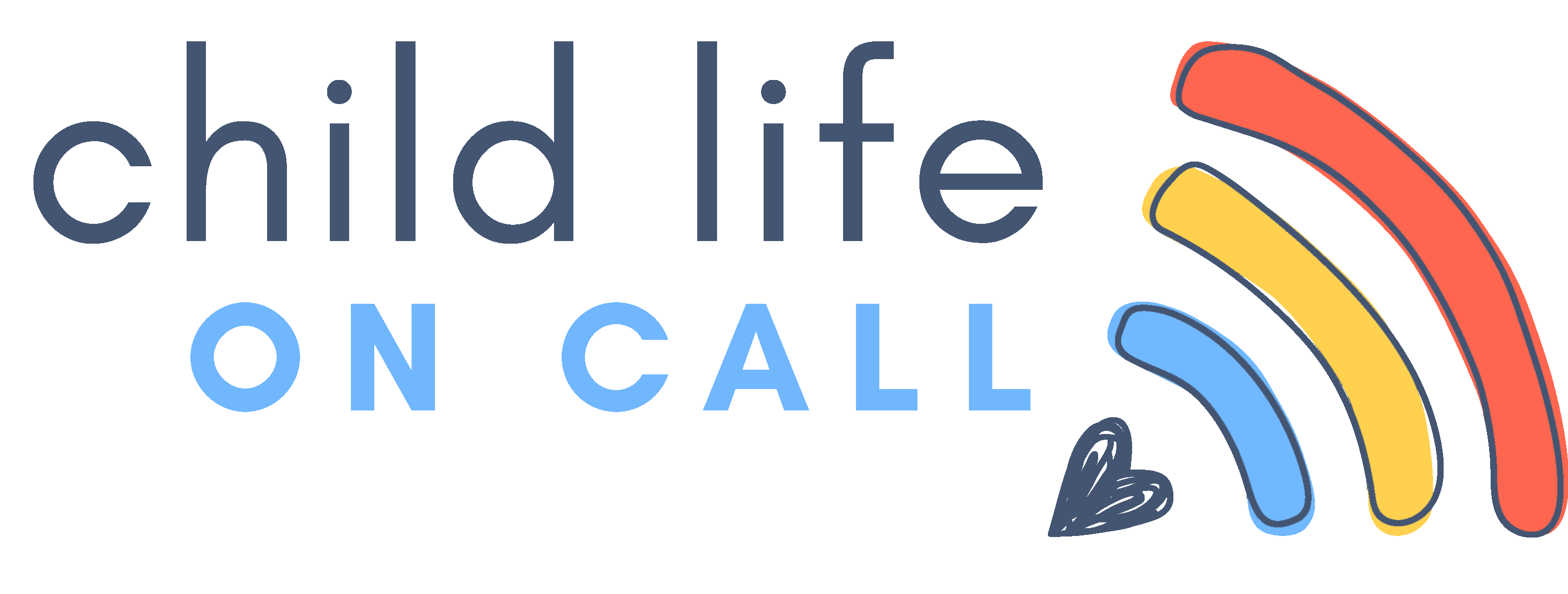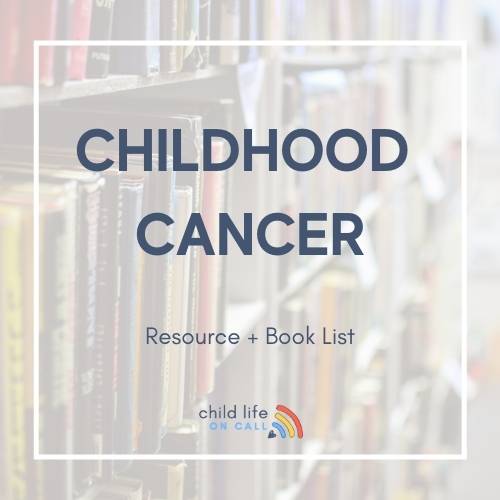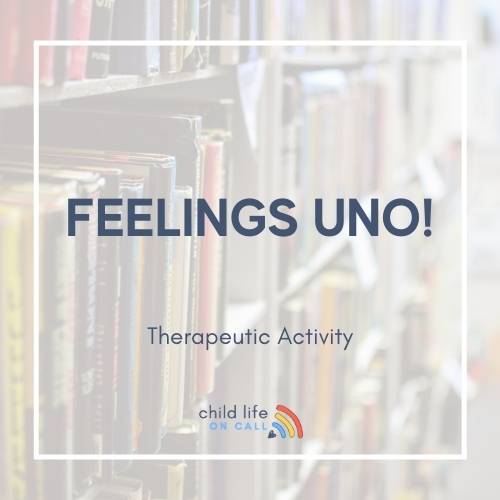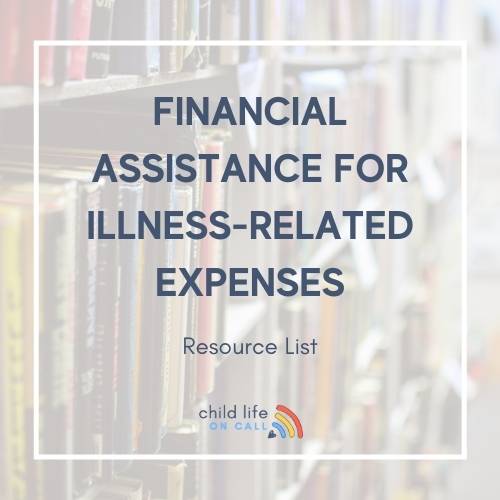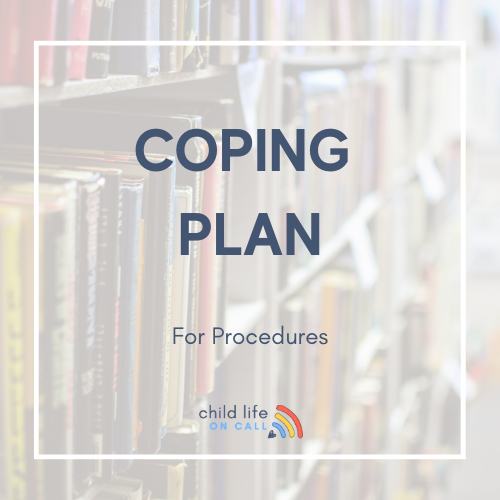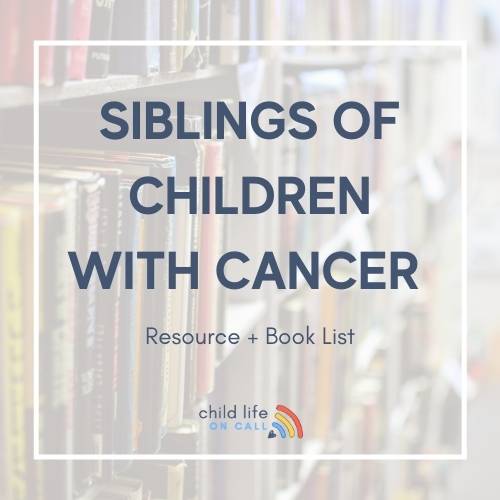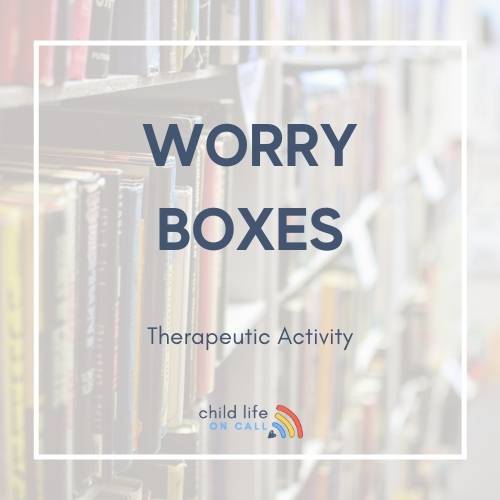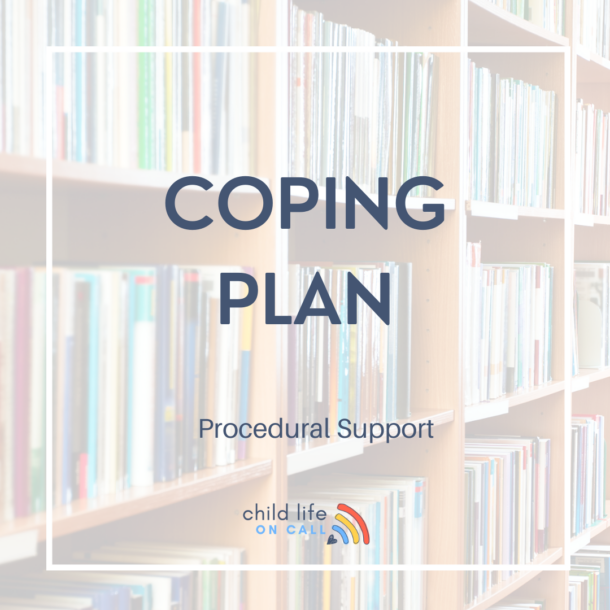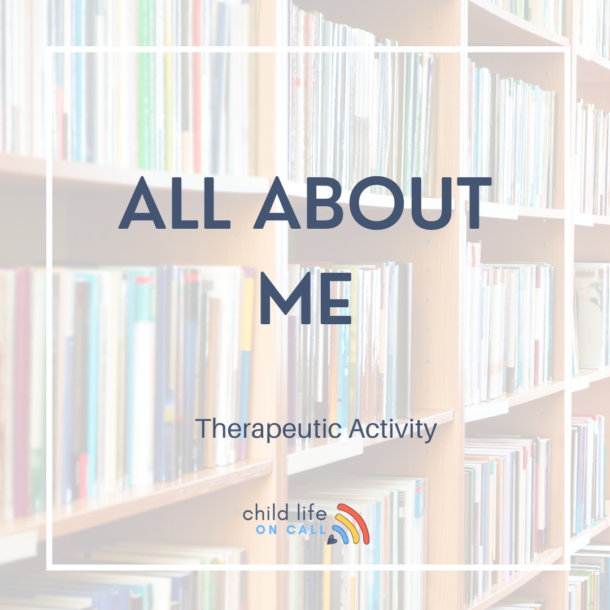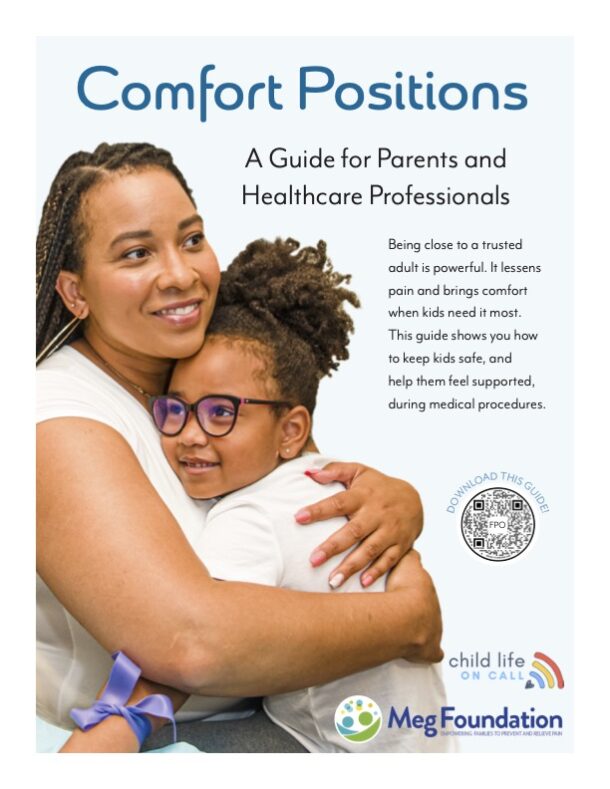April is Child Abuse Prevention Awareness Month. We have reposted this episode to bring awareness and give you tangible tools to speak with your kids about child abuse. Today’s guest expert is Jane Donovan, who is a child abuse prevention advocate. "And like we say in...
Episode 189 | Ryan’s Story- A son with Costello Syndrome
Podcast Show Notes
Meet Ryan Sheedy, an incredible father who, much to his own surprise, found himself immersed in the delightful chaos of caring for twin boys. His world drastically transformed ten years ago, when he moved from Pennsylvania to Bentonville, Arkansas. Not only has Ryan navigated the unexpected challenges of parenting twins, but he has also bravely navigated his son’s Costello Syndrome diagnosis. Through it all, he’s embraced being a stay-at-home dad, constantly learning, adapting, and conquering unforeseen hurdles.
We can plan as much as we want to plan, but it’s out of our control. We have to go with the flow. – Ryan Sheedy
In this episode, you will be able to:
- Delve into the heartening and daunting experiences that fathers encounter in the NICU, shedding light on their tenacity and determination.
- Grasp the profound impact support and open communication can make in navigating the NICU’s challenging landscape.
- Understand better the diverse responsibilities fathers shoulder as caregivers and staunch advocates in their children’s healthcare journey.
- Comprehend the rollercoaster ride of emotions and experiences that encapsulate being a stay-at-home dad and the head caregiver.
- Get introduced to ‘Mejo’, a versatile web app offering an efficient solution to
The importance of communication and support in the NICU cannot be overstated. It anchors not only the medical care of the infant but also the emotional well-being of the parents. Ryan’s story emphasizes how a strong support network, open communication with healthcare professionals, and sharing information with family and friends can make a significant difference in this intense journey.
The resources mentioned in this episode are:.
- Research and educate yourself on the complexities and nuances of healthcare, especially if you are a parent or caregiver of a child with medical needs.
- Reflect on your own role in your family’s healthcare journey and consider if you are giving opportunities to support people around you to get involved and help.
- Connect with other parents and support people in the healthcare community to share stories, advice, and experiences.
- Explore resources and tools available to help you become a confident advocate and partner with your child’s care team during healthcare experiences.
- Take time to understand medical terms and concepts related to your child’s condition or treatment to better communicate and make informed decisions.
- Reach out to local support groups or organizations to connect with other parents going through similar experiences and find additional resources in your community.
- Consider the emotional toll of being a caregiver and seek out emotionally safe spaces and support systems to help navigate the challenges and complexities of healthcare.
Whether you are a parent or professional, we want you to join our community. Sign up for our newsletter here.
Parents, download our free parent starter kit.
When you download our starter kit, you’ll learn how to:
- Give medicine to your child without it becoming a wrestling match
- Prepare your child (and yourself) for a shot so they can feel less anxious
- Create and use a coping plan for any medical appointment or procedure
The first sign of sniffles, or worse, shouldn’t send you into a tailspin. Feel confident in your role as a parent and advocate, no matter what medical situation you’re facing.
Child life specialists, get affordable PDUs on-demand here.
Shop for your CLOC gear here.
Feel empowered with Child Life On Call’s Mastering Immunizations: Expert Tips to Prepare, support and respond like a Child Life Specialist Course for Parents, Child Life Specialists and Clinicians! 🌈👨👩👧👦💉
It is the only course you’ll ever need to be able to prepare, respond and support your child at any age and stage for immunizations. Evidenced-based tips from a child life specialist who has been supporting kids through painful procedures for 13+ years. This offer will only be available for a limited time. Pre-order your course today here!
00:00:05
Hello, my friends. Welcome to Child Life On Call. This podcast is a safe place for parents to share their stories about what it’s like to have a child that has a medical experience, diagnosis, disease, and or everything in between. We know there is power in sharing stories, and that power multiplies when you can listen to other parents who have walked a similar path to yours. Giving and getting advice is great, but hearing how another parent navigates the complexities and nuances of healthcare is even better.
00:00:35
As a child life specialist, my role is to support, validate, and provide emotionally safe spaces for kids and their families, and I am so honored to be on this journey with you. In addition to parent stories, we sprinkle in some expert episodes every now and again that have content for both parents and professionals in the field of healthcare, all with the mission to empower parents to be confident advocates and partners with the care team during healthcare experiences. We’re so glad you’re here.
00:01:08
Do you mind kind of taking us almost back to your beginning a little bit, and sharing us a little bit about you, your family, where you come from? A little bit. You Ryan. Just let our listeners know I’m super excited. Thank you for having me, Katie.
00:01:20
I’m Ryan sheety. I live in Bettenville, Arkansas, with my wife Ashley, and our three young boys, campbell, Reynolds and Mac. Originally from Pennsylvania, landed here in Arkansas ten years ago. Coming from the East Coast, never thought I would be living in Arkansas, but now I am here ten years later and loving it. My wife is from North Carolina.
00:01:42
Never in her wildest dreams did she ever think she’d live in Arkansas, and she’s been here almost 14 years. We both came here for and to support Walmart, which is headquartered here in Bentonville, Arkansas. And so when we met, we fell in love, got married quickly. After that, we found out we were pregnant. And I can still remember the day that we found out we were having twins.
00:02:07
No one plans for that, really. Sometimes you think about, okay, is this a possibility? Because twins run in our family, and they actually do in my wife’s family. But that wasn’t a thought we ever had. And we were at the first ultrasound to confirm that Ashley was pregnant, and the tech was doing the wand, and I was on the other side of the room, and the tech said, there’s the first heartbeat.
00:02:30
I thought, okay, I’ve never done this before. Why is she announcing the first heartbeat? And then she said, there’s the second heartbeat. And my wife and I looked at each other like, what? And I said twins.
00:02:44
And she said, Well, I can’t say anything the doctor has to officially tell you, but there’s two heartbeats. And like, oh, my gosh, twins. And so at that moment, I kind of had this, okay, we can plan as much as we want to plan, but it’s out of our control and we’re going to have to go with the so we were super excited about that. We didn’t want to tell anybody. I remember going on a trip the next week to a family wedding without Ashley, and I had to tell somebody was like, itching I was just dying to get it out.
00:03:14
And so I told my grandmother, and she held the secret, and unfortunately, she passed away, but I had to tell somebody. So that was really cool that I got to tell her about that. And so throughout Ashley’s pregnancy, there weren’t too many complications. As you know, twins can cause some issues, and Ashley was a mature pregnant woman, which I think is ridiculous term, but so we some, some scans and some regular testing, and a few months in, we recognized that Baby A was growing a little bit larger than Baby B, but nothing more to really worry about. So we just got some high powered scans that just kind of kept everything in check.
00:04:04
They didn’t really ever want baby A and Baby B to be more than 25% to 30%. Discordinate again. Now we’re getting words thrown at us that I had no idea what they meant. And so we followed along that at week 34, ashley had some polyhydramnios, some preeclampsia, and so I’ll never forget that scan. They said, hey, good news is you’re not having the babies today, but you’re not going home until you have them.
00:04:32
And so we spent two weeks in the hospital trying to get her to 36 weeks, because they felt like that was the best chance at not having too many complications, was 36 weeks. And I’ll never forget, and you’ll hear me say that a lot, I’ll never forget because these images are kind of plastered and cemented into my brain. I remember the night before the scheduled C section, it was like preparing for a business meeting that I was super excited about. I had prepared, but you weren’t really sure how it was going to go. And so we got dressed and we got up early and we got all ready to go.
00:05:12
And they took Ashley into the operating room. And I was kind of sitting in this holding tank with two other dads who were kind of in the same boat, like, first time dads, like, what are we about to walk into? And one of the doctors walked by and said, it’s game day, dad, see you in there. And so we walked into the operating room and you kind of have to shuffle by your wife as she’s getting ready to have major, major surgery. And the doctor is like, you guys ready to have babies?
00:05:43
And we said yes. And so they started the C section. They immediately pulled out baby A and immediately started working on him and they intubated him. They invited me to come over to the warmer, and there were so many people in that room, one, because of she being preterm and the fact that they were twins. And so I went over and got to hold Baby a’s hand, which was Reynolds, and I think I took a picture or two, and before I knew it, they said, who’s ready for Baby B?
00:06:19
And I turned around and they were pulling Baby B, which was Campbell, and they brought him over to the table, and immediately they started working on him. So we went from this we’re so excited, we’re going to have twins, and we’re going to get our picture with the babies, and it’s going to be amazing to chaos, and it’s just major surgery and then having two babies, and then this emotion of, what’s going on? Why are all these people huddled around our kids? And why are they intubating? And what does that mean?
00:06:51
And then eventually they whisked them away, and we didn’t get to see them or get that picture with them. And then I had to go back to Ashley, who was going through major surgery and losing a ton of blood, and I didn’t find out till about a year later that she had to have a blood transfusion because she lost that much blood. And so, again, this emotion of being a dad and trying to be a fixer and just something you weren’t ever prepared for. No one ever talked about the thought or the possibility of having to go to the NICU. I didn’t know what that was.
00:07:30
So that was day one. I had to leave and go tell Ashley’s parents that she was doing fine, that the babies had some complications, and then I was running out cord blood because we were saving that to a cord blood bank. And then we went into recovery, and they brought Baby B. Campbell, and we got to hold his little finger in that little Et container. Yeah.
00:07:55
And then we went back to the room, and they brought Baby A, and we got to hold his little finger. And then they got taken to the NICU.
00:08:07
It felt like hours until we heard what was happening. And again, Ashley just had this major surgery that she was recovering from, and so she was kind of out of it and asking what was going on, and that put me in the driver’s seat. I’m the communicator. I’m relaying back information. I’m the one who’s making the decisions for our family.
00:08:30
And that was a job I wasn’t prepared for. I don’t think you’re ever prepared for that. And time has gone past, but I think probably an hour or two, we got to go upstairs to his NICU. And Ashley was still recovering from surgery, and I went out with my father in law, and that was the first time I walked into the NICU and saw two they weren’t cribs. They were two machines, and they were hooked up to all these different wires and beeps and I thought, oh, my gosh, what does all this mean?
00:09:03
And I had to put my trust and my heart and all of it into the doctors and nurses that were taking care of these two little guys because I didn’t know anything of what was going on. I didn’t know medical terms. I didn’t know what heart rates were supposed to be and all those different things. I was just excited to hold my kids and take a picture and be home in two days. And that wasn’t our journey.
00:09:29
That was just the first 6 hours. You put it so perfectly. Like, the dads become this communicator, this liaison between not only the mom who’s having the baby, but the care team and having to take in information and make big decisions, and you were never even anticipating that you’d be stepping into this war zone. And Ryan, can you describe a little bit about what it was like after those 6 hours? Like, I’m thinking in the afternoon, in the evening time, where you’re still in fight or flight for sure, but that adrenaline has probably started to fade a little bit, and you’re just trying to understand.
00:10:10
Do you still stay in work mode for you or how did you find yourself getting through those evening hours on the first day?
00:10:21
I don’t even know. It was just kind of we were asking so many questions, and there were still so many unanswered questions, and I had to be there for Ashley, and then I had to communicate because no one knew all the complications, so they knew we were having a scheduled c section. So I’m now answering texts from grandparents and friends and what’s going on? Where are pictures of the babies? And where’s all the excitement?
00:10:46
And we’re kind of like, we’re not sure. We’re figuring all this out. And Reynolds had to be intubated twice. And Reynolds was a very large baby. He was seven pounds 15oz, and Campbell was four pounds 11oz.
00:11:02
So 40% discordant. And so Campbell was more of a feeder grower, as they call it. So he just needed some extra time and to grow. Reynolds wasn’t swallowing, wasn’t really breathing properly, wasn’t feeding, and so the doctors kind of had this inkling that something was going on. And one of the doctors saw that he had some dysmorphic features and he had some low set ears and so forth, but no one could figure out why.
00:11:37
And so you’re, in this moment know, did you ask me if I slept or how? I don’t know. I just powered through it because I was one that was listening and hearing and then communicating back to Ashley. And I wanted to make sure I was doing everything that I could and doing it right.
00:11:55
But also I was worried that they were going to live.
00:12:00
There’s so many words and there’s so many things that are going on that were way above my head, way above my pay grade. That. I was just trying to figure out, what are all the pieces? And we weren’t doing this for just one baby. We were doing it for two babies.
00:12:16
And you meet other people in the coffee room, in the break room, and they’re kind of going through the same thing because everybody’s in the NICU, and so everybody’s going through something. And I just remember kind of leaning in on some of the other guys that I met in those hallways, you know, asking how their babies were doing. Yeah. And you just kind of go through the motions, and you wait until the next round, and you wait until the next little bit of answers or they hit a milestone or they did something. What about your care team in the hospital in the NICU in those early days?
00:12:55
Worked really well in terms of making you feel like you were included, that you knew what was going on, that you were supported, that you were held, or did you at all feel like that in those early days? I felt all of that. They were amazing. They walked us through things. They spent the time to explain it kind of in layman’s terms.
00:13:23
We still keep in contact with the NICU nurses, the neonatologists that know, on Campbell and Reynolds team, we actually had pretty much the same team when our third son, Mac, was born. I’ll never forget seeing one of the docs and said, hey, it’s so great to see you. I really didn’t want to see you today, but good seeing you, and I’m glad that you’re taking care of my third son, who is also spending time in the you know, they often say that the NICU teams are some of the most special people that you’ll ever meet, and I believe that wholeheartedly. And we still keep in contact with them. And I don’t know if everybody’s that lucky because there’s a lot going on, but the hospitals and we were at two NICUs and dealt with two different teams and two different systems.
00:14:20
And so we were very lucky to have and I use the word team because it was a team, and it was a total team effort. And all of our NICU stays, and I’m just so grateful for that. And I say about two different stays. On day five, we went to a different hospital that was almost 3 hours plus away to take Reynolds to do some more tests, and he needed a higher level NICU. And so I’ll never forget that night prior, Ashley went home for a good night’s sleep, and I stayed in the Ronald McDonald house.
00:14:59
And again, another organization that you don’t know anything about until you have to. Do it, until you have to. And you’re like, thank God you exist and you are here. Thank goodness. And it’s been amazing, and it helped us be there.
00:15:12
So she went home to sleep. I got up early in the morning and I went and spent some time with the boys and the doctors came in and said, hey, you’re going to go down to a different NICU where they can do some more. So, okay, what does that mean? I said, does Ashley come with me? Does Campbell come with us, too?
00:15:30
And they said, one parent, which most likely will be you because Ashley’s still recovering from major surgery and Reynolds will go down to little Rock to the other NICU. And so we prepared for that. We were going to go down by helicopter, but it was wintertime and so it was either too cold or something was going on. And they loaded Reynolds up in, again, what I called an Et container and they put him in an ambulance. And I drove down and followed the ambulance down to the different NICU and got there at nighttime, had no idea where I was even going, and got in there around eight, nine o’clock and met with a whole different team.
00:16:17
And now we’re talking about more things that are to come and more testing, and then I had to rely all that back to Ashley. So it became like the telephone game, hopefully I can remember everything they told me and communicate it back to her. And so, again, supposed to be the most joyous time of our life and it’s going to be amazing. And now, day five, we’re split. I just left my wife and my other son five days into this new family journey of ours.
00:16:49
It’s so isolating on so many levels. I can imagine how isolated you felt on the day of when your partner, your wife, Ashley is going through this right. And recovering from surgery. You feel isolated when you’re surrounded by this whole new care team and a new NICU. You’re having to relive that again, one of the actually made me tear up when you talk about the NICU, making you feel like a team, because I’ve worked in a NICU before that makes parents feel that way.
00:17:21
And I can see that that transformative initial collaboration you didn’t know this at the time was going to set you up for what it could and should feel like when you’re talking with doctors, when you’re in the hospital, that you can be sat down and cared for and told things in a way that you understand. And you had that experience at the beginning, which is, I’m so glad that you did. And every family deserves that. And it’s important. There’s a stat that nine out of ten US.
00:17:56
Adults don’t have the health care literacy that they need. And so finding a hospital system that can break it down in non healthcare terms for families is critical. Yeah, because it’s not only the emotional piece of all of this, but then it’s all of the information that’s being thrown at you and you’re having to make decisions. Right. And one of the other things, Katie, I did want to bring up is the perspective of being in a NICU where you’re meeting with other families.
00:18:31
And perspective is a big word that I often talk about because our situation was so crazy and so intense, but then you meet other people who are going through the same or worse. So that first night when we were separated and I was sleeping in the family room because they kicked you out of the NICU in the middle of the night. I got back the next day and this dad walked up to me and we were in an open pod NICU. And there was seven other cribs along with Reynolds crib. And this dad walked up to me and he said, hey, I was asking about you and I was wondering if you were in the same situation.
00:19:11
As I said what that was, he said, Well, I didn’t see mom with you. And so again, I was wondering if you were like me and my wife passed away in labor.
00:19:29
And I thought, oh yeah, I was feeling sorry about myself and our situation and here’s this other dad who lost it all. And so that makes me just think about how grateful we are every day to have that situation. And I don’t mean to say that to, I don’t know, open the floodgates, but it literally is like there’s so many people going through so many different situations that you don’t know about. And that’s why I try to help other dads and communicate with them and just ask them how they’re doing and see if they need help. Because we as dads don’t ask for help.
00:20:17
Yeah, we’re the fixers ones that are going to go seek out. We’re the ones that are going to run into the burning building. We’re the ones that are going to push that we’re sensitive to. Yeah, you have got a lot on your shoulders and one hard situation versus another hard situation. What’s really interesting is that you can even find this common ground in totally different situations.
00:20:47
So his wife passed but you had to leave yours 3 hours away too. Both are really hard and I’m sure that he found comfort just seeing you there and being able to talk to you and ask that question. It’s really gutsy. It’s really courageous of him, I have to say. Yeah, 100%.
00:21:08
And that’s the vulnerability part of leaving this hard dad mentality. And again, seeking help, seeking others to hold a hand with, to be there for each other.
00:21:33
And I’m not saying it’s like a black and white moment, but this transition of breaking that mold is there a defining moment or was it a slow transition where you thought the way I’ve seen men or dads in families before is not going to work for me? And now I’m going to step out of my comfort zone and be the dad I want to be and be the dad my friends need and be the dad my kids need. What was that transition like for you? I do that daily.
00:22:11
Again, going back to the we’re having twins. Wait a minute. I signed up for one. We’re having twins, and then we have twins. One with medical complexity.
00:22:21
To getting discharged 103 days after being in NICU, to being the primary caregiver. So our son has Costello syndrome, which is an ultra rare disease. He wasn’t diagnosed until he was 19 months old through a whole axome, but he left with a G tube, and he left with a slew of unanswered questions and a long list of appointments to go to. And those first couple of appointments, I went solo because my wife was the primary provider. We were in complete role reversal.
00:23:06
And so a lot of times I was asked if mom was coming or we needed to phone mom or if I had everything under control. Never do you see someone asking mom that has five kids if she needs help. But you see one dad and you’re like, do you have this? Are you okay? What do you need?
00:23:25
And so when Ashley was up for a career promotion and my job was kind of dwindling because I was spending a lot of time with the boys and going to Reynolds doctor appointments, I raised my hand and said, how hard could it be to be a stay at home dad celebrating five years next month and it’s still very I need a little badge that know five plus years in this. But when you said finding a moment, I think when I said I’ll step in. Right. Because I had these aspirations of I wanted to be a CEO, I wanted to be a businessman, I wanted to be the provider of our family. And now I’m taking this different role.
00:24:16
Some may call it Mr. Mom, some may call it wearing the skirt you’re wearing, all these things. And I actually go, you know what? This is actually a super tough job. Hell, yes.
00:24:29
And there are reasons why a lot of men don’t do it because we aren’t as strong as women. We’ll be right back.
00:24:40
One of the things I am asked the most often as a child life specialist, not only by the patients and families that I’ve worked with, but by my friends, is, how can you support and prepare your child for a shot? And as a parent myself, I know sometimes it’s so hard to even concentrate on what the doctor is saying because I’m so nervous about my child having. To get a shot. And, yes, that’s even coming from a child life specialist. Thankfully, I can rely on what I know about child development, family centered care and traumainformed care to pull on medical stressors that could come up for my child, and I know how to support them through it.
00:25:18
And now we want to give parents those same tools that child life specialists use. And that’s why I’m so excited to share with you our new course that’s made just for parents. We have worked with instructional designers who are experts in making courses online. We want to put you, the parent, in the driver’s seat of these appointments. What we do is we go by age group and tell you exactly what the stressors could be for your child and what the interventions are that a child life specialist would use to help your child through having to get some sort of poke.
00:25:51
If you’re a parent who wants to walk into your child’s medical appointment and instead of feeling overwhelmed with anxiety, you want to feel empowered and know how to prepare and support your child and how to advocate for them, then this is the course for you. This course will only be available for four weeks, so go make sure you pre enroll for the course this fall. Go to Child Life On Calloncall.com. MyChild needs a shot. That’s Child Life On Calloncall.com mychildnewshot.
00:26:27
We aren’t the nurturer as well, right? So I could be the best caregiver to my sons, but being the nurturer isn’t something that we are naturally instilled with. And so now having to be this caregiver and parent, and there’s a very hard difference between being a parent and being a caregiver. To then running the house, to being okay with not being in those big meetings and lunches and presentations and things like that. To going to the library, going to the park, where you’re the only dad around.
00:27:06
Yeah. But it was something that we made a decision collectively that was going to be the best for our family. You’re a pretty awesome dude, Ryan. Katie, it is a duck on water. Smooth on top, one crazy pedaling on the bottom.
00:27:30
Oh, man, I was just thinking about this in my life. Literally yesterday, I was putting my kids toys away in our living room that, know, clean, and then you open the cabinet underneath the TV and shit just spills out. And I’m like, oh, that’s me.
00:27:48
Sure, it looks okay from the outside, but you open it up and you’re like, I don’t even know what’s in there anymore. And I felt that exact way. But I think looking back, your kids will remember that you didn’t care about the crayons on the wall or the playdoh stuck to things. They got to play, and they got to play with their mom, with their dad, whatever. So kudos for you just sweeping it and put it in the closet, man.
00:28:19
We’ll just shove it in there and. Letting them kind of do their thing. Well, I told you we were going to talk for 20 or 30 minutes, but that’s just a bold faced lie. So sorry, Ryan. You and I got to connect on the interwebs.
00:28:35
I think we were first introduced through our good friend Effie. I don’t know if I think in an email, and maybe you and I had already talked online, but I’m immediately drawn to you as a human, as an advocate for your child, for speaking out, and just the way you do it with such compassion and precision in what you’re able to deliver to other parents who are going through similar circumstances. Most notably, you’re a badass who created a badass app that helps so many families. And so I see these parts of pre dad, pre Ryan coming into your current life, and I feel that way about myself, like, so who I was before I became a parent is different than who I am now. And I see these parts from earlier in life that are showing up now.
00:29:27
And it’s really cool to get to put those two things together and what we love so much. Tell us about my mijo. You and I have talked about it personally, but I would love for our listeners to hear why you created it and a little background about it. Yeah, so I’ll go a little bit further know. When we were in the NICU, communicating information back to ashley, to family, was a little bit of a challenge.
00:29:54
And so I created PowerPoints because I was a business person, I created PowerPoints. And I would have images, and I would have these things that I could send home, and she could read about it with images. And it’s a lot of information, so much. And we’re asked all the time to recite it, to fill out a form to remember all of these things. And so I originally had this idea while we were in the NICU, and reynolds primary nurse remembers that kind of sketching it on a napkin.
00:30:26
And we often about that. But fast forward with reynolds getting discharged and having all of these moving parts. I had to repeat the same information over and over again to countless providers, to insurance companies, to anybody who was in reynolds care, and it got draining, and I had to relive all of that. And so I created a little one pager that talked a little bit about the medications that reynolds was on and when he got certain diagnoses or when he had procedures done. And it was just a quick when they asked me, tell me about reynolds.
00:31:06
And I said, here you go. And it was just made in PowerPoint. And I heard from a lot of different doctors and therapists, like, wow, this is amazing. I wish all my families had something like this. This is best in class caregiving.
00:31:19
And one, I said, I can’t replicate this because I just made it in tables and PowerPoint, so there’s nothing to give you. But then I thought, if this is best in class caregiving, there’s an opportunity here to really build something. And so just like I said almost five years ago, how hard could it be to be a stay at home dad? I said, how hard could it be to create an app in healthcare with no tech or development or healthcare background. Yeah, it’s super easy.
00:31:47
Yeah, it’s just like building a house, right?
00:31:54
We created a simple beta where people could input information and it would spit out these beautifully designed PDFs that kind of told the story of your child. And we also wanted to give parents the opportunity to tell their story of their child beyond their diagnosis. So beyond here’s Reynolds that has Costello syndrome, or here’s child with Ctnnv one, or here’s child with prater willie or Rhett syndrome, but here’s who they are as a kid, and here are their little nuances, and here’s what it takes to care for them. And I’ll never forget when we sat down with a geneticist after we got our diagnosis, he said, Reynolds has Costello, but he also has Reynolds syndrome. And he has Reynolds syndrome because he is his own person and he’s going to do all these different things.
00:32:43
And so that was the whole genesis of why we wanted to create Mijo, which stands for me journal or medical journey. And my friends in Texas and California call it Miho, which means better or friend or son. So it all kind of worked out. And we launched with the help of a co founder, Bret Konkak, who spent his career in the EHR world, a simple but useful web app that folks could put information about their child and have it at a moment’s. Notice.
00:33:17
Can use it to tell the story. Can use it as a repository to look up when their son or daughter had a procedure or what medication they have, or hey, if you’re super lucky and Grandma’s coming over to watch the kids, you don’t have to write all the information down. You can send her a text or email with all that information and it’s ready to go. And the amount of families that we have connected with over the last year has been inspiring, exciting. It puts wind in our sails because they are families just like us who are going through these times.
00:34:06
Five years ago had no idea what a rare disease was. And now, because of Reynolds, we are meeting so many other families that need our help, and we are just getting started. And we want to give caregivers back time in their know. We often say that being a caregiver isn’t a full time job, it’s an everyday job. So Reynolds is at school right now, but I’m still fielding calls from medical supply companies, insurance companies, schools, saying what dosage is his medication on again?
00:34:43
And I have to be always on with that information. And so that is why we built what we built. And we built it so that it’s super simple but useful, that it’s not comprehensive and complex like the EHR. We are not trying to be the EHR. The EHR plays a critical role while you’re in the hospital, but the majority of care of these kids happen outside of those four walls.
00:35:17
And we as parents and caregivers are these kids voice we are their lifeline. They depend on it. And so we just make it a little bit easier to have that information at their fingertips. It’s incredible. You’ve shared with me Reynolds profile on there, which is I love the ability to shoot it to another family member when you have to step out.
00:35:40
And like you said, you don’t have to write everything down and just the ease of function that it is easy to use. It doesn’t take a master’s degree to figure out how to plug it in. It’s incredibly easy is so useful. I think it’s so beautifully well done. Who did you really design it for?
00:35:59
So on this podcast, Ryan, we have healthcare professionals who listen to this. We have parents of kids with both chronic and acute and rare diseases. Who is this really for? Who can have access to Mijo? Yep.
00:36:16
So we believe everyone should have a mejo, right. We’re focusing right now on pediatrics because that’s the space that we’re in. That’s the highest need. But anyone can have a mejo. My two sons who are neurotypical also have mejos because one has a peanut allergy, the other one has eczema.
00:36:39
They have another doctor to be on their pediatrician. So it allows me to kind of keep all that information in one place. But we’re focusing right now on the rare and medically complex kiddos and the people that care for them, because the people that care for them understand what Mijo does and how to use it. And they don’t need to be kind of told how to use it and what to use it for, but we built it for those caregivers. And the beneficiaries are the providers to learn a little bit about a kid who has some things that aren’t in their chart.
00:37:18
They’re useful to know. Grandmas and babysitters benefit from it, school therapists benefit from a standpoint of intake forms or, hey, we’re going up on our yearly eval. Can you send me the list of their medications? And there are any procedures in their doctors and I can say it’s already in your inbox because a few seconds I hit send. Or schools when it comes time for IEPs because they’re asking you the same questions.
00:37:48
But we really build it for the caregiver so that they can save time, have more peace of mind, so they can spend time with their kids, versus having to recite the same information over and over and over again. Yeah, it’s one of those pieces you pointed out at the beginning, is reliving every single thing, every single moment, every single medication. You’re not just saying a medication in the back of your head, you’re actually reliving of why that medication was needed and what doses, what worked and what dose didn’t worked and how long you’ve been on it. And it’s a word that can live on a document and maybe take some of that stress away instead of you having to go through it over and over again, 100%. We don’t call them use cases.
00:38:34
We call them moments of care. And again, as I said earlier, the majority of moments of care happen outside of those hospital settings. And so it’s removing emotional stress. It’s removing repeating the same information. It’s removing, oh, my gosh, I can’t remember.
00:38:53
I got to go scramble to find that information. Yeah. And it allows these caregivers and families to just have it. All right there. One of my favorite stories that a mom told us was her son has a really rare skin disease, and he has tons of medications and treatments.
00:39:14
Now, because of Me Joe, she has all of it in one place, and that in a few seconds, she can send it to whoever she wants.
00:39:24
But the child was able to go to camp for the first time without a caregiver or her, and she sent me a picture of his to go bag, and it had his Mijo sticking out. Oh, my gosh. And I thought, that is the whole reason. It’s not about what it does. It’s about why.
00:39:43
And it’s about letting kids be kids, letting them not be tied to their specific diagnosis. And so we hear these stories, and I’m sure like you hearing from the families who are actually using it makes everything all worth. It makes building that house so worth it. And as I said earlier, we’re just getting started, and just having the ability to share this document is kind of the tip of the iceberg. Well, I’m so grateful to you for opening it up a lot about your personal journey and what you went through in the beginning of Reynolds and Campbell’s life and sharing with me, Joe with the world and being so generous with your time and your skill set and your expertise.
00:40:38
If you’re listening to Life On Call, you already know what Mijo is, but we’re going to continue to share it. Share. Ryan. Ryan, where can people find you on social media and find me Joe? Yep.
00:40:49
So I started before Mijo to do a dad blog on Instagram. It was called at dad happened. My wife quickly pointed out to me that I spelled it wrong, and I just kept it so it’s Dadhappend and on there. I just like to share funny things that I do with my boys and building a cardboard castle or dressing up like Mrs. Doubtfire for Halloween and dancing and all these things.
00:41:19
And I recently got to show the boys because at the time, they were young, they laughed, and they thought their dad was goofy, and I hope they can do the same thing when they’re 20 years old. Mijo is at my underscore mejo on Instagram and Facebook and we share a lot of stories of families who are not only just using Mijo, but who they are as a family, who their kiddos are with their diagnosis, but also what they’re doing in their real life and the obstacles that they’ve overcome and little tips and tricks and things like that. So it’s been in a really great community, this rare disease and medically complex community where people lean on each other, they share resources, they tell stories, they work together. And so I’m grateful for we just hit over, I think, 1100 followers. I know each one of them because we follow each other and we share.
00:42:22
And that’s what it’s truly about. It’s about community.
00:42:27
Ryan, I have one final question for you, and if you could talk about what you’ve learned about yourself since becoming Reynolds and Campbell’s dad and Max dad, what have you learned about yourself over the past six years? I’m always learning that my kids rely on me, my wife relies on me, others rely on me. And I’m grateful for that. And all of the things that you had said earlier, pre Ryan to all of this was kind of the pre read to the real story.
00:43:20
And I don’t know where tomorrow is going to take me. So I try to live in the moment. Some of that is because I’m not an organized person, and so I got to just kind of go with the flow.
00:43:35
But I try to be more grateful for the days and time that we have. I think it’s the perfect answer. And our path teaches us, reveals who we are and who we want to become. And you never had to sign up to be inspiring, but you are just because of what you’ve created. And I’m so grateful for your resources, for your championing, for your voice.
00:44:06
So thank you so much for sharing it with us. Thank you for having me. It’s been an honor.
00:44:14
Thank you all so much for listening to Child Life On Call. If you head to our website, Child Life On Calloncall.com, you’re going to find all sorts of stuff there for parents, professionals, healthcare providers, Child Life On Call specialists, no matter who you are, actually, when you just go to our homepage, it’ll tell you. It’ll help you direct to exactly where you need to go on that, you’ll find opportunities. And PDUs for child life specialists, parents, we’ve got a starter kit for you. And clinicians.
00:44:41
We even have a clinician course which teaches you how to be a confident and capable caregiver in pediatrics. We’re so grateful that you’re here. Please DM us on instagram. And like mentioned, when you rate and review this podcast, it helps other.
You Might Also Like…
215: Ruptured Appendix: Emergent Surgery, 6 Days in the Hospital & Struggles to Discharge
"I've learned so much in this whole process. It's like you have a depth inside of you that resurrects as an advocate and high alert, and it lives inside of you when you need it." -Aspen, Willa's Mom In this episode of Child Life On Call, host Katie Taylor and guest...
214: Sacrifice, Advocacy, Joy: Raising a Son with End Stage Kidney Disease – The Ransome Family’s Story
"Sometimes it's really therapeutic though to remember all that you have gone through because I feel like there are times when we look at each other and I'm like how did we get here?" Taylor Ransome We're grateful for our sponsor for this episode, Nestle Health...
